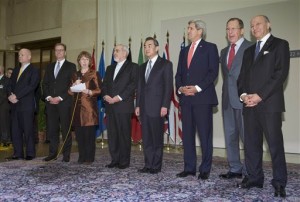
The United States, Iran and four world powers reached landmark negotiations on Nov. 24 that will allow foreign powers to better monitor Iran’s nuclear program with the hope of sanction reliefs.
The negotiation allows for the monitoring of Iranian nuclear reactors and centrifuges that enrich uranium for nuclear power. Highly enriched uranium is necessary for nuclear weaponization, whereas an enrichment level of only 5 percent is necessary for producing nuclear energy. Iran has been enriching uranium to levels of 20 percent in some reactors, and it claims that its nuclear program is solely for peaceful purposes of providing energy.
International relations professor Donna Lee Bowen said that the international deal, however restrictive on Iran’s nuclear program, can yield great long-term benefits for Iran. The agreement, an initial agreement that lays the groundwork for a more comprehensive arrangement in the future, allows foreign powers to monitor the reactors and will halt uranium enrichment at its current levels. It also prohibits the construction of additional centrifuges to ensure that Iran’s nuclear program will not create nuclear weapons. Iran will potentially receive $7 billion in sanctions relief after six months of monitoring ensures that the nuclear program will not produce weapons.
“It’s a really big deal for Iran,” Bowen said. “They’re hoping this will bring a little ease to state repression.”
Bowen said this state repression includes humanity and civil rights abuses by the regime, which will hopefully lift when foreign countries begin to investigate Iran. The deal is widely seen as a “win-win” situation for the U.S. and Iran, but not every country is pleased with the deal.
Israeli prime minister Benjamin Netanyahu, called the deal a “historic mistake,” saying Iran cannot be trusted. Israel claims that Iran is a threat and that Israel is a likely target if Iran conceals parts of its nuclear program from monitoring and creates a nuclear weapon.
“The real basic point is, can you trust them?” Bowen said.




